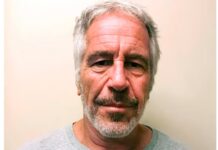In a shocking and unexpected turn of events, Gabon, a Central African country, has been thrust into political turmoil as mutinous soldiers have taken control of the nation. This upheaval occurred shortly after the announcement of President Ali Bongo Ondimba’s re-election victory, an outcome that had already sparked controversy and dissatisfaction among the population.
The coup leaders, in a televised announcement broadcast on Gabon’s state TV, disclosed that Gen. Brice Clotaire Oligui Nguema, a cousin of President Bongo, had been unanimously designated to lead a transitional committee, effectively taking charge of the country’s governance. This development marks a significant shift in power and has raised questions about the future of Gabon’s political landscape.
Background of Gabon Discontent-
President Ali Bongo Ondimba, who assumed office in 2009 following the death of his father, who had ruled country for an astonishing 41 years, has faced considerable discontent and criticism during his tenure. Critics argue that the Bongo family, who have maintained their grip on power for decades, have benefited from the nation’s considerable oil wealth while much of the Gabonese population continues to struggle with economic challenges.
The Military’s Action and Immediate Measures-
The mutinous soldiers who seized control of Gabon imposed a curfew, restricting movement from 6 p.m. to 6 a.m. local time. However, they did allow for freedom of movement during daylight hours on Thursday. In their statements, they emphasized the importance of maintaining calm and stability during this transitional period.
Their actions have thrown the nation into a state of uncertainty, with many questions surrounding the legitimacy and intentions of the military leadership. This coup comes on the heels of a disputed presidential election, adding further complexity to the situation.

Economic Disparities and Allegations of Corruption
Gabon, a former French colony and a member of OPEC, possesses substantial oil wealth. However, this wealth has not translated into widespread prosperity for the population. Economic disparities persist, with nearly 40% of Gabonese citizens aged 15 to 24 reported as unemployed in 2020, according to the World Bank.
Additionally, allegations of corruption and embezzlement have plagued the Bongo family. A French NGO called Sherpa has been conducting investigations into nine members of the Bongo family, revealing preliminary charges related to embezzlement, money laundering and various forms of corruption. The investigations have uncovered connections to significant assets in France, including two villas in Nice.
Motives behind the Coup-
The leaders of the military coup have cited their concerns about President Bongo’s governance style, describing it as “unpredictable” and “irresponsible,” which they fear could lead the country into chaos. They also asserted that individuals in President Bongo’s inner circle have been arrested on charges of high treason, massive embezzlement of public funds and international financial embezzlement.
While some perceive this coup as a popular uprising against the long-standing Bongo dynasty, analysts and experts have cautioned that it might be more about internal power struggles among the ruling elite. This complexity adds an additional layer of uncertainty to Gabon’s political landscape.
Impact on the Economy and International Response-
The military coup has already had significant repercussions for Gabon’s economy. Flights were canceled and operations at the country’s main port in Libreville were halted. Authorities refused to grant permission for vessels to leave, further disrupting economic activities. Several French companies have suspended their operations in the country to ensure the safety of their staff.
Internationally, the coup has drawn condemnation from France, which has historically maintained close ties with Gabon. France has not only expressed its disapproval but also closely monitored the unfolding situation. In addition to France’s concerns, the United States is closely watching events in Gabon.
Regional and International Concerns-
The coup in Gabon follows a broader trend of political instability and military takeovers in West and Central Africa in recent years. The apparent impunity enjoyed by coup leaders in previous instances may have inspired the soldiers behind the Gabonese coup.
This situation has raised concerns among international leaders and organizations. Nigeria’s President Bola Tinubu has cited a “contagion of autocracy” spreading across the African continent. The African Union’s commission has condemned the coup, calling for a return to “democratic constitutional order.”
The European Union has also expressed its concerns and the issue of Gabon is expected to be discussed by EU ministers, given the potential for increased instability in the region.
An Uncertain Future for Gabon-
As Gabon grapples with the aftermath of this military coup, the nation faces profound uncertainty on multiple fronts. The sudden shift in power, economic disruptions and international scrutiny have left Gabonese citizens and the international community with many unanswered questions.
The evolution of the situation will be closely monitored by international organizations and governments as they assess the implications for Gabon’s political stability, economic prosperity and regional security. The path forward for Gabon remains unclear and the nation’s future will undoubtedly be shaped by the unfolding developments in the coming days and weeks.





